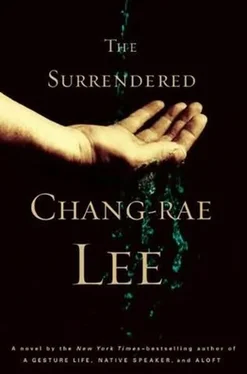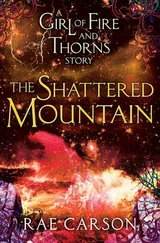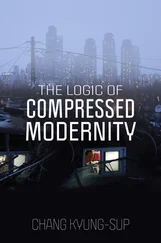THE TRAIN SLOWED DOWN and halted completely for a moment, then started again, the change in the rhythm waking Hee-Soo from her dreams. June was listening to her and wondering whether to wake her out of them, as she was growing more and more upset. She was calling their father as if he were inside his study but had somehow gotten locked in and was greatly distressed.
“Please hold on, Father,” she was half crying. “Please just a little longer. Mother is still looking for the key.”
June wound the blanket tightly around them, retucking the tattered ends beneath their feet. The stars were just appearing, moment by moment gaining in brilliance as the sky darkened. In another time, in another life, she would have thought them pretty, might have stirred her siblings to gaze up at their array, but as it was she could only see them as impossibly distant and perfect. Forever uninterested. After the train lurched forward, Hee-Soo fell quiet, Ji-Young snoring lightly the whole time; he always slept well, despite the circumstances. June hoped she might fall asleep, too, for a few hours at least, so that she’d have some strength the next day. But it was futile. She was thoroughly exhausted and her limbs felt as frail and old to her as that farmer’s wife’s branch-thin arms; and yet her mind still raced at night like a fueled engine, simply running and running, until it ran so hard and long that it forgot all else but this sole reason for being.
Their father had been the first. The last time she saw him he was bleeding from the nose and mouth, from the eyes, kneeling on the ground with his hands tied behind his back, a South Korean army officer standing jauntily above him, pressing the nose of a pistol to his head. The rest of them, except for her older brother, were in the back of a large transport truck, being driven away with the families of the other men who were being rounded up. They weren’t told where they were going. It had all happened instantly, in the course of an afternoon, this a week after the war started; the rapid retreat of the South Korean forces was sweeping through the towns and a general panic abounded, everyone fearing what the Communists might do as the front rolled southward, people frantically loading up whatever they could and filling horse carts, wheelbarrows, cars if they had them. But as it happened the ROK forces wreaked as much misery as the northern soldiers, and perhaps more. That morning June’s family was packing when the local police captain and ROK army officer and two armed soldiers appeared in their inner courtyard and ordered that her father go to the station with them. At first he simply nodded, as if the sight of them were nothing unusual. When they grabbed him to take him away he suddenly erupted, demanding to know what they were doing, why they wanted him, but they wouldn’t tell him. When he resisted, a soldier rifle-butted him in the face, sending him to the ground. His nose was smashed. Her older brother, Ji-Hoon, who was fourteen, wildly threw himself at the soldier but he was easily thwarted and they toyed with him cruelly before corralling him into the back of a sedan, along with his half-conscious father. June witnessed this from the house, having just gathered the few clothes she would take with her, the rest of the family arrayed below in the small inner courtyard, and when her father was struck it did not seem an actual or even possible happening. It seemed to her that she was shouting and screaming along with her mother and older sister (the younger twins were sobbing), but a week afterward, in a quiet moment of rest on the road, her older sister asked her how she could have been so dispassionate and calm. “What is wrong with you?” she’d said, almost desperately, her tone suggesting that June’s non-reaction was more a confirmation of her character than any surprise.
June’s father and brother were driven away. The rest of the family was ordered to wait. Two hours later a truck pulled up and they had to climb into the open bed, where another fatherless family was riding. The truck picked up two other families and made its way to the public square of their town. In the square was her father, along with three other men. They were badly beaten up, bleeding and swollen about their faces. June’s brother was not among them. The police captain announced that these four men were advance spies for the North, which the men had apparently admitted to under questioning. Neither her father nor the others were allowed to deny the charges. A crowd of townspeople had gathered, including some village officials who stood nervously behind the police captain. Then her father and the others were pushed to their knees. The officer paused for a moment and then waved the driver of their truck to pull away. June never heard any shots. They were driven for an hour or so south of town and then told to get out and join the rest of a throng of refugees marching on the road. Unlike the others, they were carrying hardly more than what they were wearing, though her mother had wound a belt of cash around her waist in the last chaotic moments they were in their house. Her mother asked the driver if he knew where her son had been taken, and the driver told them that a truck full of new conscripts had been sent toward the front line. But his expression was odd and her mother pressed him and he finally said that he’d heard the truck had been ambushed and attacked, and that those not immediately killed had been taken prisoner. For the next weeks her mother asked every person she came across if they had encountered or heard of him, the only word coming from a woman from their town who said she heard rumors of young South Korean men who had been reconscripted by the Communists and taken north.
June still asked after her brother whenever she had the chance, though somehow she was certain that she would never see him again. Either he would be killed in the fighting or they would perish on the road. But even at the farmer’s house she spoke his name to those sitting immediately around them, perhaps more for the twins’ sake than anything else.
The twins were fast asleep. She was flagging, too, and hungry. Sometimes the pangs overwhelmed her at night, after her siblings were asleep, and only then did she allow herself to softly whimper and cry. By the morning her spirit had hardened again, her mind already scrambling, angling furiously as to how they would eat for the day.
They were constantly famished, the hunger risen in them like well water during the spring rains, accruing to them each day until the feeling, oddly enough, was like an unbearable plenitude, this pressing flood of hollowness that would not recede. In the beginning, in those first days on the march, when they still had some money, they might buy rice and dried cabbage from others, her mother making a simple soup or gruel in a small tin pot a former neighbor had kindly given them. Because they’d had no time to gather what they’d packed they had much less than most of the other refugees. At first they did not dwell on the circumstances, for they were surely only temporary, for everyone was quickly moving southward toward the rumored refugee camps set up well behind the front, where people said there was plenty of food, and tents. Once a column of American trucks had rolled by, the soldiers tossing oranges and candy to them, and they could believe they would be all right. But soon enough, within mere days, there was little anyone could sell them, or, if someone was willing, a cup of rice or some strips of dried squid would be so costly that their money was practically worthless. And so the five of them-her mother and older sister and the twins and herself-took to foraging and scavenging, leaving the road for a part of the day to gather whatever they could in the countryside, greens and roots, wild berries and seeds, and then always checking any abandoned or destroyed American armor or trucks, however dangerous that might be, for whatever had been left behind. The Americans seemed to have unlimited supplies and were generous and profligate with them. Of course everyone else knew the same and so it was pure luck to happen upon a vehicle before it was completely, instantly stripped.
Читать дальше











